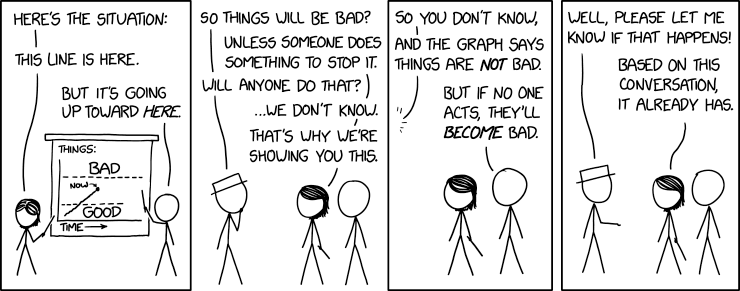Collected Quotes

“Scientific Method” Entry
— The Columbia Encyclopedia, 2000
First, information is gathered by careful observation of the phenomenon being studied. On the basis of that information a preliminary generalization, or hypothesis, is formed, and this in turn leads to a number of implications that may be tested by further observations and experiments. If the conclusions drawn from the original hypothesis successfully meet all these tests, the hypothesis becomes accepted as a scientific theory or law; if additional facts are in disagreement with the hypothesis, it may be modified or discarded in favor of a new hypothesis, which is then subjected to further tests. Even an accepted theory may eventually be overthrown if enough contradictory evidence is found, as in the case of Newtonian mechanics, which was shown after more than two centuries of acceptance to be an approximation valid only for speeds much less than that of light. (emphasis added)
I often say that when you can measure what you are speaking about, and express it in numbers, you know something about it; but when you cannot measure it, when you cannot express it in numbers, your knowledge is of a meagre and unsatisfactory kind; it may be the beginning of knowledge, but you have scarcely in your thoughts advanced to the state of Science, whatever the matter may be.”
― Sir William Thomson, Lord Kelvin, 1883
A theory in science is not a hunch or ‘just a theory’ as some say. It is an explanation built on multitudinous confirmed facts and the absence of incompatible facts. Omitting evolution from biology is comparable to leaving the U.S. Constitution out of civics lessons.
— Maxine Singer, molecular biologist and president of the Carnegie Institution of Washington, August 16, 1999

Bonus: “Scientific Briefing”

Reply
You must be logged in to post a comment.